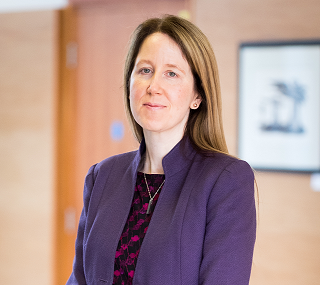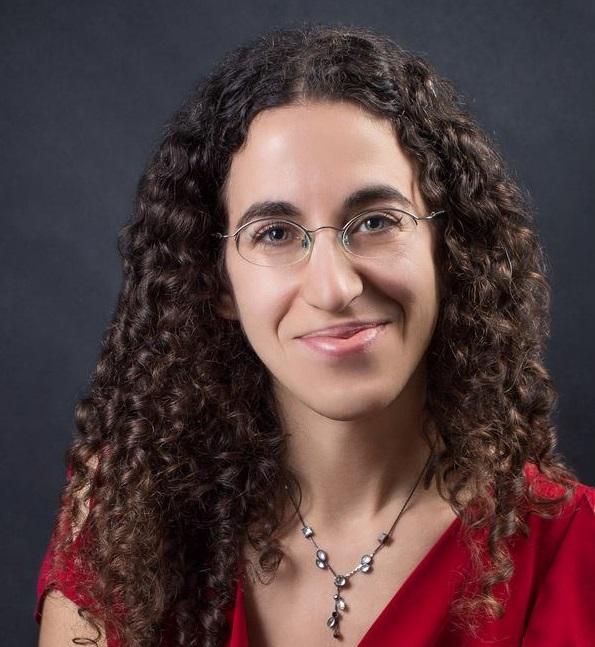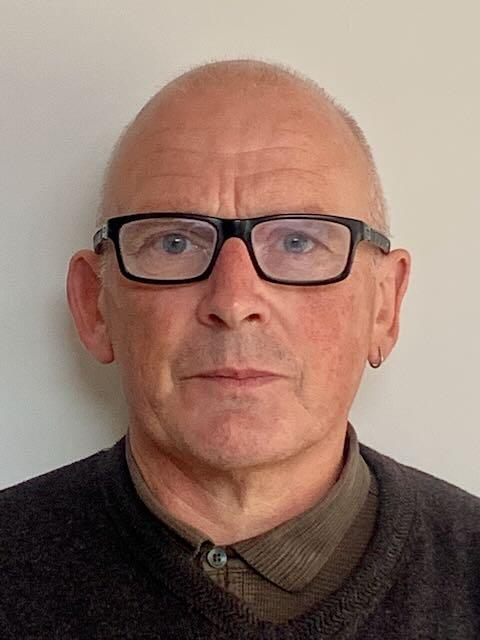Between ‘Modern Slavery’ and ‘Decent Work’: Responses to Labour Exploitation
Speaker(s):
Associated with:
Notes & Changes
A recording of the workshop is available here: https://www.youtube.com/watch?v=Ery7XmtlABY&list=PLwj4-Geqxth_ww5LTXKFgsc0Vj0VK-CeK&index=2;
Written summary and further resources available here.
To join our mailing list and receive updates about coming events focusing on modern slavery and labour exploitation, please email bonavero-ms-subscribe@maillist.ox.ac.uk.
This event will explore the meaning - for legal standards, policy, and law enforcement - of using a negative framework (‘modern slavery’) that emphasises extreme forms of exploitation society aims to abolish, compared with a positive framework ('decent work'), one emphasising more ideal notions of how work should look like.
Modern slavery comprises the worse forms of labour exploitation. Under the UK’s Modern Slavery Act 2015 it includes slavery, servitude, forced or compulsory labour and human trafficking. Conversely, decent work as defined by the International Labour Organisation (ILO) is aspirational, and refers to employment opportunities, adequate earnings and productive work, decent working time, combining work with family and personal life, stability and security of work, equal opportunities, safe work environment, social security and social dialogue.
The event will start with a panel discussion on labour law and public law (moderated by Maayan Niezna), followed by practitioners’ roundtable to consider the meaning of the different frameworks in practice for policy, law enforcement, and compliance of businesses (moderated by Elinor Buys).
Panel: Labour Law and Public Law

Deirdre McCann (Speaker)
Deirdre McCann is a Professor of Law at Durham Law School. Her research is in the field of labour law and policy at the domestic and international levels. Her work has a particular focus on the regulation of precarious work, working conditions, the measurement and comparison of labour law regimes, and the influence of state norms in low-income settings. Professor McCann is a Fellow of the Academy of Social Sciences, a co-founder of the international research Network on Regulating for Decent Work, a member of the Editorial Committee of the Industrial Law Journal and a former Official of the International Labour Office in Geneva. Her publications include Regulating Flexible Work (Oxford University Press 2008), Creative Labour Regulation (Palgrave 2014) and ‘Labour/Data Justice’ (Journal of Law and Society 2022). Professor McCann has held a Leverhulme Research Fellowship (2015) and since 2017 has lead a series of projects funded by the UK Economic and Social Research Council and Global Challenges Research Fund on Decent Work Regulation.

Anne Davies (Speaker)
Anne Davies is Professor of Law and Public Policy and a Fellow of Brasenose College. She studied at Oxford, completing the BA and the D.Phil. She was a Prize Fellow at All Souls College, the Garrick Fellow and Tutor in Law at Brasenose College, and the Dean of the Oxford Law Faculty. Professor Davies is the author of five books and numerous articles in the fields of public law and labour law. In public law, she has a particular interest in government contracts. Her books include Accountability: A Public Law Analysis of Government by Contract (OUP 2001); Perspectives on Labour Law (CUP 2004); The Public Law of Government Contracts (OUP 2008); EU Labour Law (Elgar 2012), and Employment Law (Pearson 2015). Her interests in the employment law field are wide-ranging, encompassing international, European and domestic law. She is currently working on a project on remedies in employment law. She chairs the Procurement of Government Outcomes network for the Blavatnik School of Government at Oxford. Professor Davies is a non-executive member of the Board of the Parliamentary and Health Services Ombudsman, and a member of the Advisory Panel to the Welsh Language Commissioner. She previously served as an independent member of the Council of the Advisory, Conciliation and Arbitration Service (ACAS).

Elinor Buys (Speaker)
Elinor Buys is reading for a Doctor of Philosophy (DPhil) in Law at the University of Oxford. She specialises in the use of public procurement to address modern slavery in UK Government supply chains. Elinor tutors Employment Law at Oxford and was previously the coordinator of the Oxford Business and Human Rights Network. She holds a Master of Philosophy and a Bachelor of Civil Law (BCL) from the University of Oxford and a Bachelor of Laws from Queensland University of Technology. Before coming to Oxford, Elinor worked as a solicitor in Brisbane, Australia, practising in commercial litigation and arbitration.

Maayan Niezna (Moderator)
Maayan Niezna is a Postdoctoral Research Fellow in Modern Slavery and Human Right at the Bonavero Institute of Human Rights, and a Fellow of the Modern Slavery Policy and Evidence Centre. Her research focuses on trafficking for labour exploitation and the regulation of labour migration. She holds PhD in Law from Kent Law School, MSc in Human Rights from the London School of Economics, and LL.B in Law and Philosophy from the Hebrew University of Jerusalem. Prior to her doctoral studies, she led the legal work on trafficking at the Hotline for Refugees and Migrants-Israel, and worked on issues related to trafficking at the Office of the National Anti-trafficking Coordinator, Israeli Ministry of Justice, and UNHCR. Her work on trafficking and slavery has been cited by NGOs, policymakers, and Israel’s Supreme Court.
Roundtable: Policy and Practice

Neill Wilkins (Speaker)
Neill Wilkins is the Head of Migrant Workers Programme: Institute for Human Rights and Business (IHRB). Neill manages all aspects of the IHRB Migrant Workers programme and helped oversee the development of the Dhaka Principles for Migration With Dignity - a set of human rights based principles that offer a clear framework for understanding the recruitment and employment of migrant workers worldwide. The current focus for the programme is ethical recruitment and in particular the payment of recruitment fees by migrant workers. IHRB are working with others to promote increased due diligence by business and establish the principle of “employer pays” (the cost of recruitment) as the norm across all industry sectors and locations.
Neill also manages IHRB engagement with the modern slavery agenda and speaks regularly at events focussed on forced labour, trafficking and transparency legislation. He has worked extensively with the construction, apparel and hospitality sectors both in the UK and elsewhere including the Gulf and SE Asia. Neill previously worked as part of the Campaigns Team at The Body Shop International where he was involved with a number of environmental and human rights campaigns.

Frank Hanson (Speaker)
Frank Hanson is Head of Prevention and Partnerships at the Gangmasters and Labour Abuse Authority (GLAA), a Non Departmental Public Body (NDPB) that works in partnership to protect vulnerable and exploited workers. In his current role working in collaboration with the Skills and Education Group and other partners, Frank has been instrumental in developing a Level 1 Award in Worker Rights and Labour Exploitation, a unique qualification to help individuals and communities understand their rights in the workplace and protect themselves from labour exploitation and which recently won a national industry award.
Frank started his working life as a coal miner in South Yorkshire, aged 16, working there until his colliery closed 11 years later. He returned to study as a mature student at Sheffield Hallam University completing BA (Hons) History and MA in Housing Policy in which he was awarded a distinction. Since leaving university, Frank has worked in a variety of roles in local government, further education and higher education before joining the GLAA in 2017 as Policy Officer.

Kate Roberts (Speaker)
Kate Roberts is the head of Policy at Focus on Labour Exploitation (FLEX). Kate has a background in workers’ rights, campaigning and advocacy as well as anti-trafficking work. Kate has previously worked as UK & Europe Manager at Anti-Slavery International and headed the Human Trafficking Foundation. She compiled and edited the Slavery and Trafficking Survivor Care Standards 2018, which UK Government committed to adopting in the current Victim Care Contract. Kate has also worked at Kalayaan, where she gave immigration and employment advice to migrant domestic workers in the UK as well as leading the organisation's policy and campaigning work, at a Sure Start programme and in International Development. She has a BA in Social Anthropology with Development Studies from Sussex University and an LLM (Distinction) in Human Rights from Birkbeck University, School of Law.

Aké Achi (Speaker)
Aké Achi is a former child labourer from the Ivory Coast with an experience similar to human trafficking for labour in France. He holds a BSc in International Relations from Kingston University and an LLM in International Human Rights Law from Birmingham City University. He is currently studying to become a qualified 'labour migration law' solicitor.
Earlier this year, Aké was elected to the Executive Committee of the Human Rights Lawyers Association. His experience in the labour movement led him to start the Litigant In-person Services to support unrepresented migrant workers because their issues are not top priority Trade Unions. In 2022, he received Barbri Solicitors Qualifying Exam (SQE) Public Interest Scholarship. Aké also set up the Black Europeans Working Group, which led to the formation of the Black Europeans Organisation to Tackle Bureaucratic Discrimination against EU Citizens from BAME backgrounds. He is also working with his brother, a former child labourer on a cocoa farm, on Kidz At Work project, an awareness-raising campaign to highlight the negative impact of the EU blanket ban on child labour and products made using child labour, which they argue will exacerbate vulnerability to the worst form of exploitation.
Peter McAllister (Speaker)
Peter McAllister is Executive Director of the Ethical Trading Initiative (ETI), a leading alliance of companies, trade unions and NGOs that promotes respect for workers’ rights around the globe. ETI works with its members to improve working conditions in global supply chains, recognising that these are complex and challenging, and are best tackled through collaborative efforts. Peter joined ETI in October 2010 and has led the development of a demanding new strategy that seeks to transform the way business approaches workers’ rights, demonstrating impact for workers and value for business. He has spent 30 years engaged in international development and rights-based initiatives around the world, including seven years setting up the Geneva-based International Cocoa Initiative (ICI) and 13 years with the international development NGO CARE.


 Add to calendar
Add to calendar


